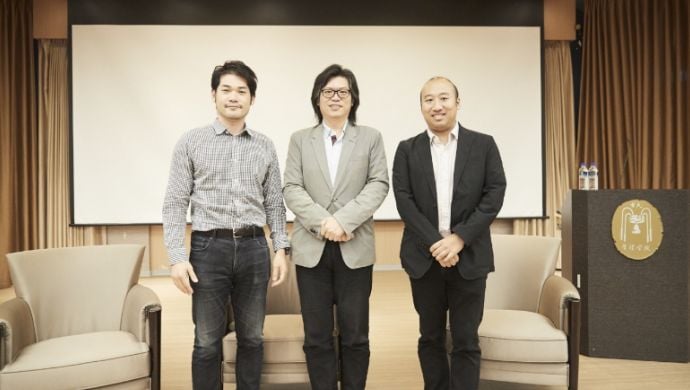Cinnamon plans to open five AI research centers across Asia with a goal of employing 500 AI engineers by 2022

Japanese AI solution provider Cinnamon has joined the ranks of Microsoft and Google to set up an AI research and development center in Taiwan, attracted by the nation’s regionally-strong scientific and technical education.
In the face of a regional talent shortage, the company will even offer free six-month-long AI courses to young Taiwanese in October with the hopes of cultivating future employees.
“Taiwan has the potential to lead the development of AI in the Asia-Pacific market,” said Hajima Hotta, Cinammon co-founder and chief technology officer.
“Although many (talents) are hardware engineers in Taiwan, they have generally received basic science education such as mathematics and physics, which is the cornerstone of AI.”
Hotta said his company plans to open five AI research centers across Asia with a goal of employing 500 AI engineers by 2022. As the US and China work to attract international talent in the rapidly-growing field of AI, many countries are facing a talent shortage.
Also Read: 4 ways artificial intelligence is innovating e-commerce
Training the best and brightest
Cinammon’s free courses for university-aged students even include stipends for transportation and other expenses. The best students in the course receive job offers with the company.
“You have to give something to get top talent,” said Hotta, who earlier launched a similar programme in Vietnam, according to a Business Next report on July 18.
Hotta himself is something of an information and communications technology protégé, having obtained a doctoral degree in neural networks from Keio University in Japan at the age of 25.
He later became a serial entrepreneur. One of his early ventures was Cirius Tech, which was later acquired by Yahoo! Japan. He is using his rich experience in startups to create a curriculum that emphasises practical applications.
Lessons taught by three to four experts either drawn from the faculty of National Taiwan University or National Tsinghua University are scheduled to begin in October.
Students aren’t required to sign a contract and are offered a high degree of freedom regarding their studies and interests. The course involves two months of basic theoretical training and four months of group training. Students use AI open-source frameworks and after six months they begin to write AI-related algorithms.
The first such course offered in Vietnam drew some 150 students but only eight were selected for the group training course and only three were hired by the company.
Also Read: How artificial intelligence is disrupting education
Future plans
Cinnamon is currently wrapping up Series B funding. FFG Venture Business Partners, ITOCHU Group, and SONY Innovation Fund have collectively contributed a total of US$8 million. It is also raising financing from Mizuho Bank and Sumitomo Mitsui Bank, with the company near its goal of raising US$10 million by August this year.
Cinnamon’s most well-known product is FLAX Scanner, which brings in more than 80 per cent of the company’s revenue.
FLAX Scanner is an AI-enabled documentation tool that enables users to extract information from application forms, documents, and emails. The product also interprets handwriting and text data.
—
The article Japanese Startup Cinnamon Opens Taiwan R&D Center with Offer of Free AI Courses first appeared on Business Next.
The post Japanese startup Cinnamon opens Taiwan R&D centre with offer of free AI courses appeared first on e27.